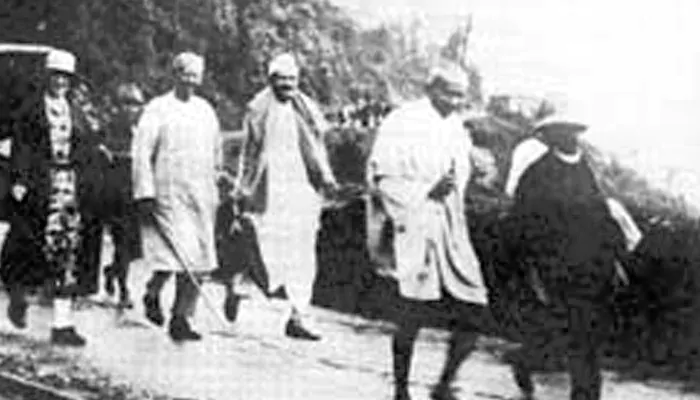
When India’s future father of the nation rattled royals at his first big speech.
Banaras. February 1916. The city was buzzing with excitement. The Banaras Hindu University was inaugurated, and Mahatma Gandhi was invited to speak. He had just returned from South Africa, where he had led a bold movement against racial injustice. Now, India waited to hear his voice on its soil.
It should have been a grand beginning. But what happened next was anything but smooth.
The hall was filled with Indian royalty, British officials, and elite leaders. Gandhi stepped onto the stage wearing his simple dhoti. Unlike the others, he looked plain, almost out of place.
Then he began to speak in English. His words were polite, but what followed shocked the room. He pointed out the stark contrast between the diamonds on the necks of Indian princes and the poverty in the streets outside. He questioned how a nation dreaming of freedom could ignore its people's suffering. The room fell into uneasy silence. Then, a few left the stage. Others whispered in disapproval.

The speech, meant to be a statement of intent, almost backfired. Gandhi’s directness didn’t sit well with the powerful. Annie Besant, a respected nationalist, felt embarrassed. The princes felt insulted. The British were amused.
Gandhi had not read the room. He was speaking of simplicity and self-rule to an audience used to grandeur and power, and at that moment, it seemed he had miscalculated. His first speech in India was dangerously close to being his last.
But beneath the awkwardness was something powerful. Gandhi didn’t flatter or pander. He spoke the truth as he saw it. His words carried a more profound message—real change would only come if India’s leaders connected with its poorest people.
He called for inner reform, not just outer freedom. For self-purification, not just political speeches. That idea stayed in the minds of those who truly listened.

What looked like a flop became the beginning of something bigger. While the elite were offended, younger minds took note. Students, thinkers, and future leaders like Jawaharlal Nehru were stirred. This was not just another politician. This was someone different.
Gandhi’s speech, though clumsy in its setting, made it clear that he would speak uncomfortable truths, even when they hurt.
That day in Banaras taught Gandhi—and India—a lasting lesson: Truth often lands hard. Speeches can flop when they challenge comfort, but sometimes, flops are necessary.
Gandhi didn’t give up. He took his message from that polished hall to the muddy fields of Champaran a year later. There, with the indigo farmers, he turned his words into action. And India began to see the real power of his approach.

Gandhi’s awkward first speech in India reminds us that bold ideas rarely arrive perfectly. Sometimes, the most important messages come wrapped in discomfort. That Banaras speech may have fallen flat in the moment, but it echoed far beyond that hall. It was the start of a new kind of politics: one that spoke, acted bravely, and listened deeply. A near-failure, yes. But also, a quiet triumph.